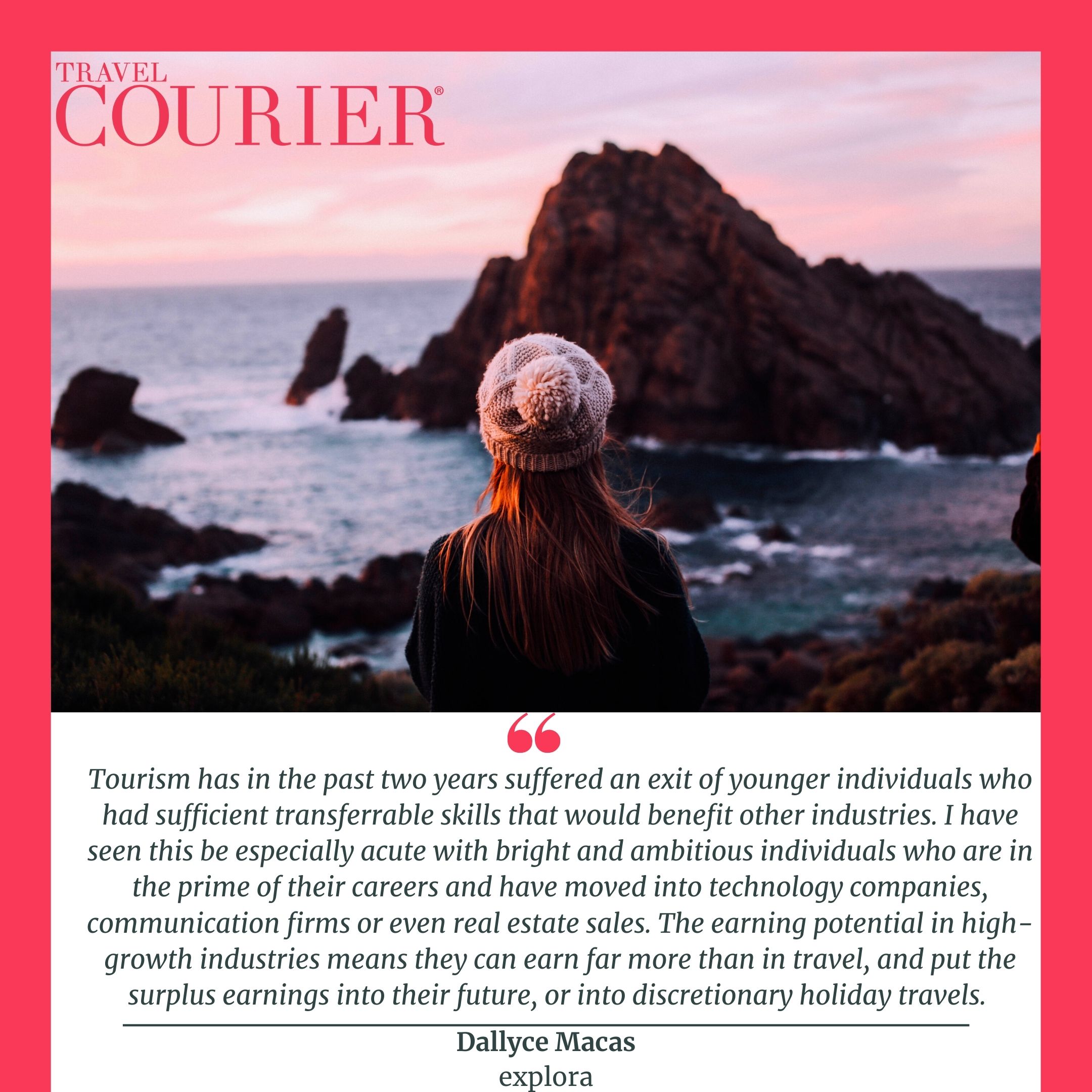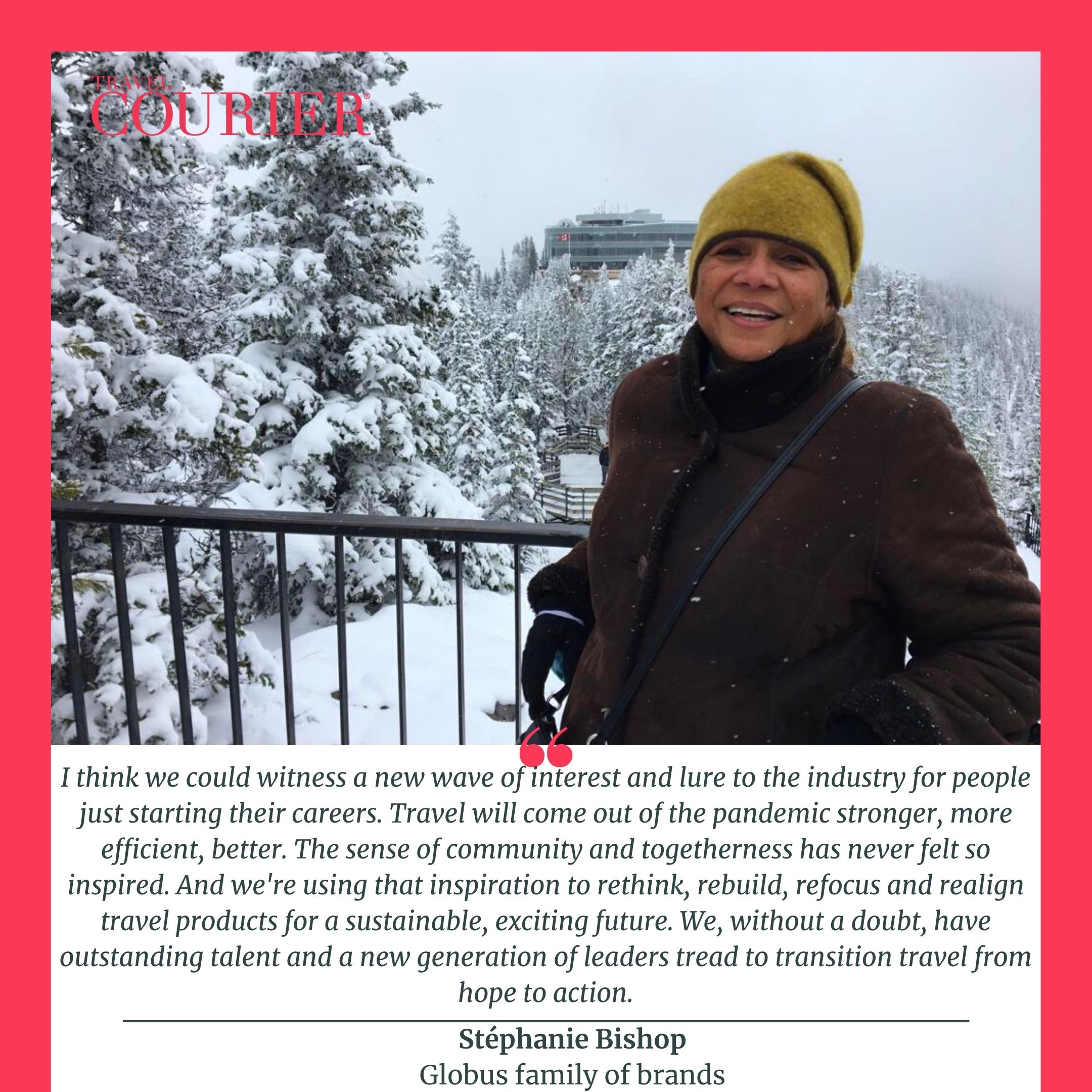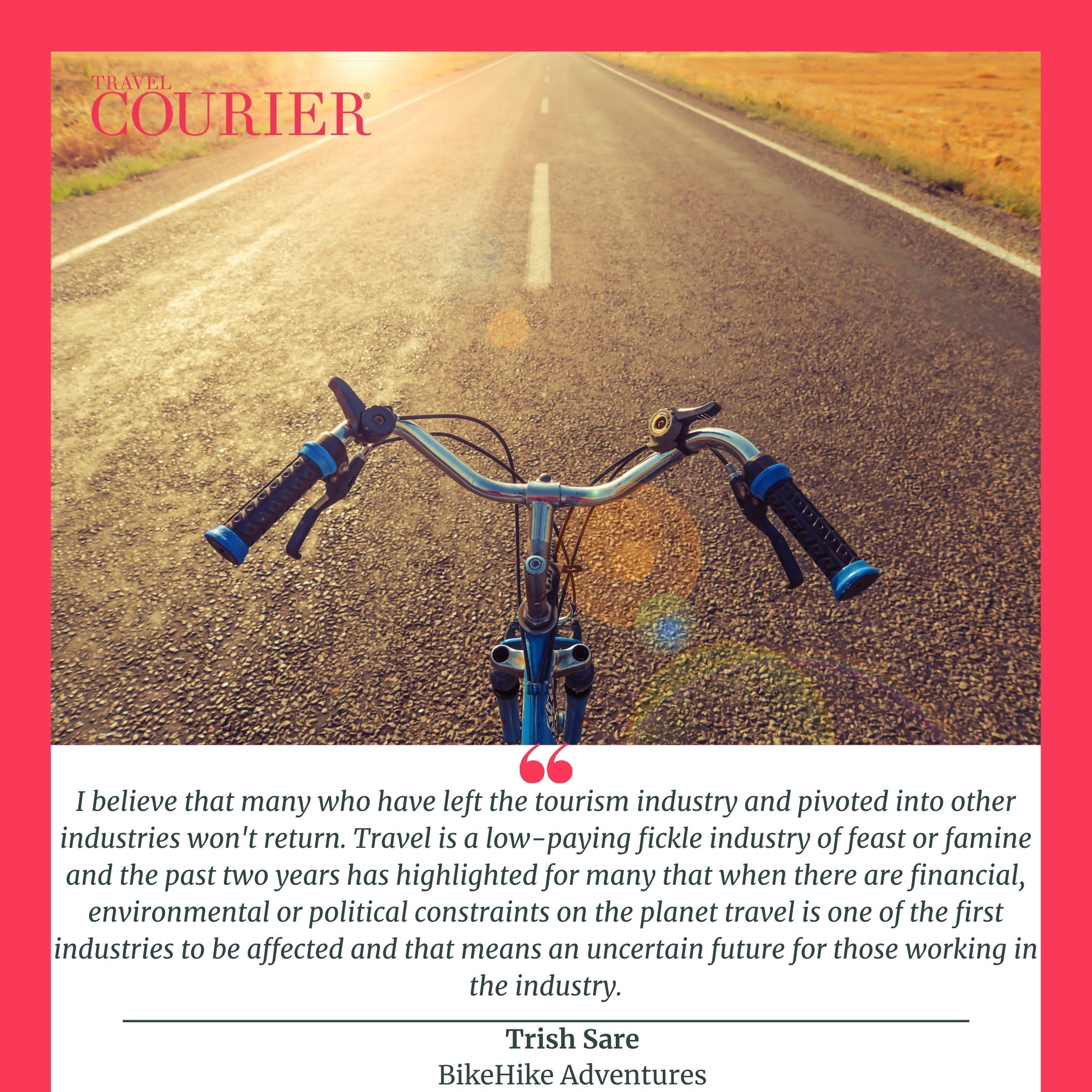What will the travel industry look like after the pandemic? Will laid-off employees return?
IAN STALKER
So just what will the travel industry look like once the coronavirus pandemic is well and truly behind us?
Well, that depends upon who you ask, with some predicting that, for instance, familiar travel industry faces will be commonplace for those who ride out the pandemic, while others suggest the pandemic’s lingering nature may mean there will be plenty of permanent industry personnel departures.
Dallyce Macas, Canadian representative for South American resort company explora, says the travel industry has already seen many leave for good.
“Tourism has in the past two years suffered an exit of younger individuals who had sufficient transferrable skills that would benefit other industries,” she says. “I have seen this be especially acute with bright and ambitious individuals who are in the prime of their careers and have moved into technology companies, communication firms or even real estate sales. The earning potential in high-growth industries means they can earn far more than in travel, and put the surplus earnings into their future, or into discretionary holiday travels.
“At the other end of the spectrum are those who have spent their careers in tourism and travel, and have ‘hit a wall’, wondering if the ongoing demands of navigating the cancellations, changes, along with client expectations, are worth the stress.

“I believe that going forward it will be harder for travellers to find experienced, knowledgeable and talented travel professionals to take on their travel arrangements in the next five years, as the attrition level of travel counsellors close to retirement or semi-retirement takes hold.”
Macas says another factor that may come into play is that a direct consumer of travel is now much more accustomed to technology being part of the process. “Consultations by video meetings are now the norm. How will that affect retail travel stores? Suppliers in a destination can now speak directly to the agent and the client together through video, enabling a more robust and realistic planning process,” she says.
“I also believe a new ‘hybrid’ travel consumer will emerge; travellers who are comfortable taking care of portions of their planning online, by themselves, and engage a professional for advice, counsel and confidence. Perhaps the biggest benefit the travel counsellor will see is the chance to finally be comfortable charging clients for their time, for their professional advice and duty of care.
“Let’s hope so.”
Stephanie Bishop of the Globus Family of Brands expects coronavirus will leave a long-lasting impact on the travel industry.
“Without question, this pandemic has changed our industry, likely forever,” she states. “The silver lining will be that those of us who have stayed in travel will be stronger than ever and the value of travel advisors has never been more prevalent.”

Bishop believes that some of those who have left the industry since the onset of coronavirus may have been nearing retirement and decided to expedite the end of their careers as the pandemic led to a major travel industry slowdown.
Other likely left for financial reasons and may return to travel once it fully rebounds, she adds.
“I think we could witness a new wave of interest and lure to the industry for people just starting their careers,” Bishop continues. “Travel will come out of the pandemic stronger, more efficient, better. The sense of community and togetherness has never felt so inspired. And we’re using that inspiration to rethink, rebuild, refocus and realign travel products for a sustainable, exciting future.
“We, without a doubt, have outstanding talent and a new generation of leaders tread to transition travel from hope to action.”
Trish Sare of BikeHike Adventures is another who expects we will see fewer familiar faces down the road.
“I believe that many who have left the tourism industry and pivoted into other industries won’t return,” she says. “People who work in travel love the industry but travel is a low-paying industry of feast or famine and the past two years has highlighted for many that when there are financial, environmental or political constraints on the planet travel is one of the first industries to be affected and that means an uncertain future for those working in the industry.

“Other factors at play are that thousands of hotels, tour operators, airlines and travel agencies worldwide have closed their doors in the last two years, so the supply of services and products has diminished and until new ones emerge there won’t be an abundance of positions available.”
Sare expects that masks and vaccination passports will remain part of the industry and many travellers will continue wanting “lenient” cancellation and charge penalties, and also won’t want to pay their final trip balances until their departures draw near.
She also predicts that travel insurance will become increasingly important, and high-tech firms will be looking at how they can “capitalize on the onslaught of travel once the surge in travel returns.
“My sincere hope is that tour operators and travel agencies will be able to charge service fees for all the hard work and value they bring to their clients,” she adds. “That may only work with the luxury traveller who isn’t price-sensitive. For those who serve the budget and mid-range price points, technology has made it very easy for the clients to go direct to the source or book through large OTAs, who can offer large discounts due to their market share.”
Lessner Gomez of the Cuba Tourist Board expects that “some of the health and safety protocols” resulting from coronavirus will continue to be in place after the pandemic has ended.
“I think the last two years have been tough for our industry,” says Gomez, adding some in the industry at the start of the pandemic are now gone because they were laid off or couldn’t make ends meet.

But Gomez predicts those people will return to travel once the industry recovers. “Most people in this industry love travel and love what they do. Once you have the travel bug you can’t get rid of it. The industry will bounce back stronger than ever.”
Gomez also hopes the past 21 months will convince the travelling public to have a greater appreciation for responsible forms of travel.
Renata Snidr of NARAT predicts a travel rebound later this year.
“Following two years of an inability to travel, consumer sentiment for travel is intensifying. If the virulence of the new Covid-19 strains is diminishing, as we see with Omicron, it will increase this sentiment.

“The deciding factor for the market’s positive movement will be government travel restrictions and policy.”
She believes this year’s recovery will be along demographic lines, with younger travellers leading the recovery.
“For the mature travel demographic, travel decisions this year will primarily be based on destinations with highly vaccinated populations,” she forecasts. “Many of the latter group could rely on travel agents to come to a purchase decision, based on the agent’s recent experience of the destination.”

















